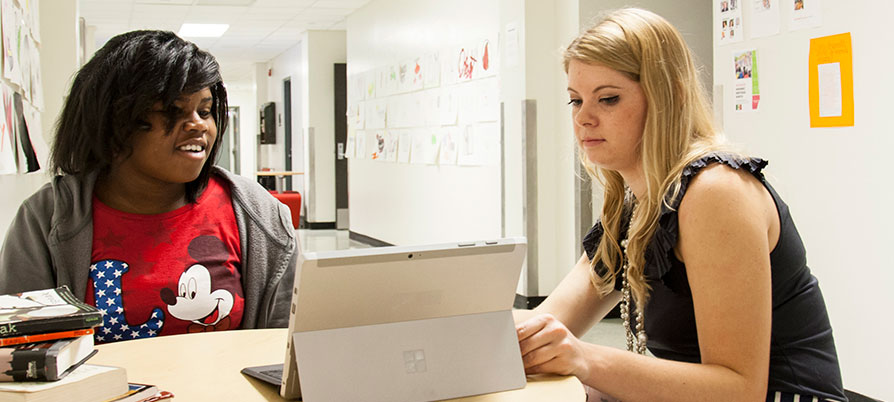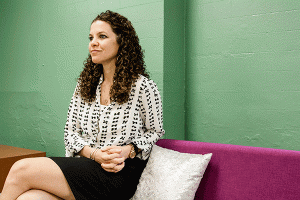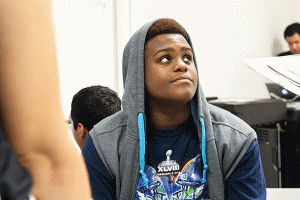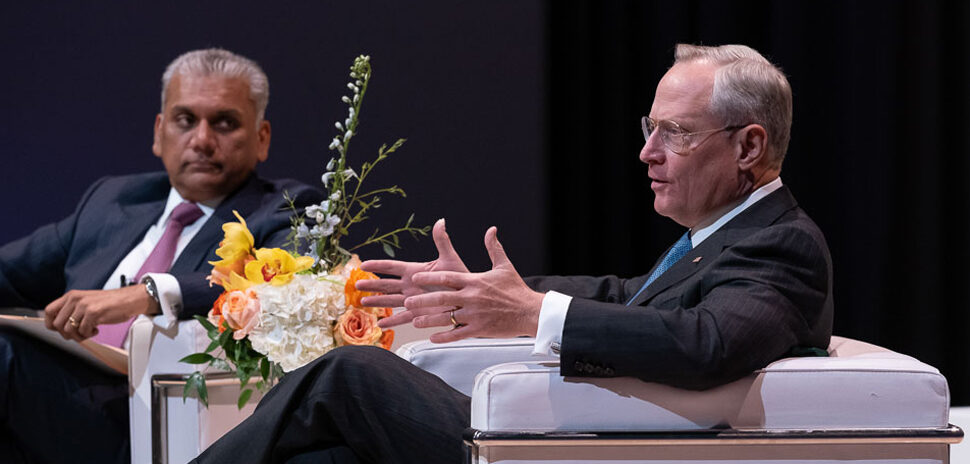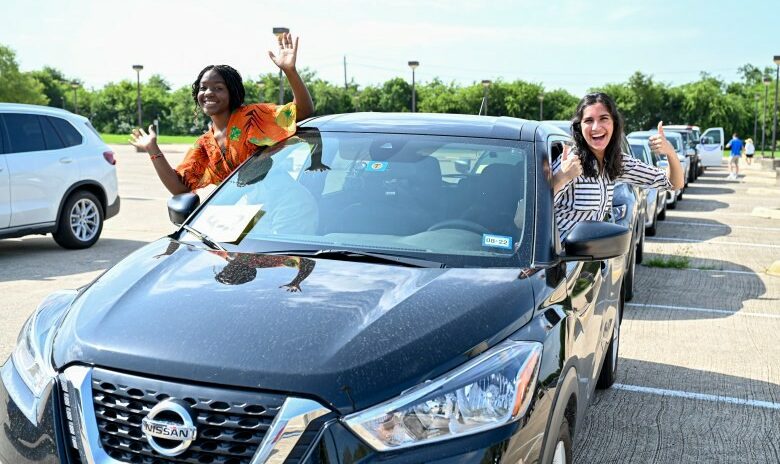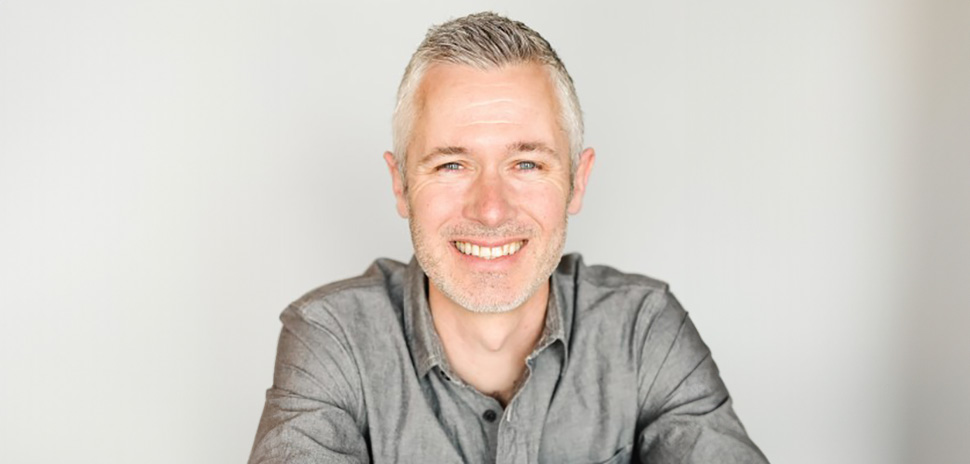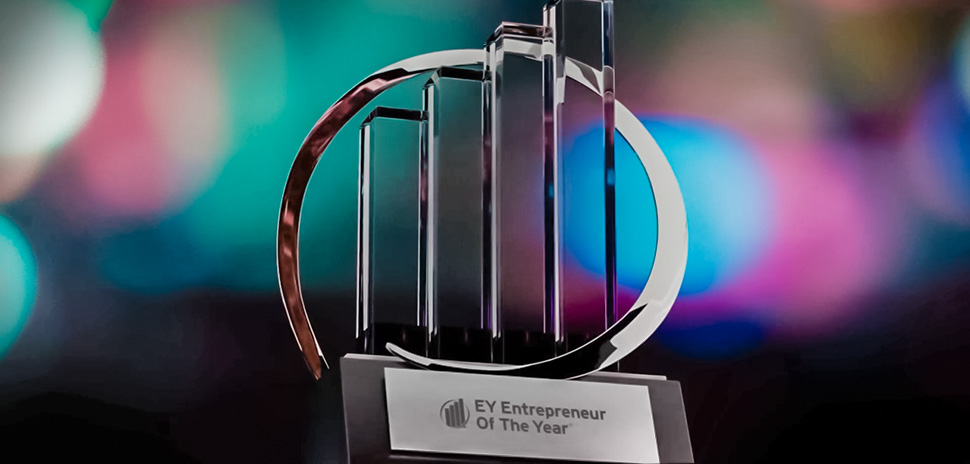In July 2014, Sarah Ritsema and Courtney Egelston sat down at a six-foot picnic table and began to build a foundation for the Innovation, Design, Entrepreneurship Academy (IDEA), Dallas ISD’s new choice school that delivers an individualized education to each of its students.
Funded by the Bill and Melinda Gates Next Generation Systems Initiative, the pair of educators, who today serve as IDEA’s founding principal and assistant principal, sought to structure IDEA around three main components: personalized education, mentors and internships, and next generation skills.
“We want to do all three really well,” says 38-year-old Ritsemn, who has served DISD for more than a decade. “It’s about educating the whole student and moving to a one-size-fits-one education.”
After nearly a year of research, planning, proposals, and picnic table meetings, the Dallas ISD Board of Trustees voted 8-0 to officially open IDEA as a choice school in August 2015.
“IDEA presents a unique opportunity to attract students and families yearning for a new iteration of learning that taps into the passions and interests of our children,” says Miguel Solis, School Board First Vice President and the DISD Trustee who represents IDEA’s district. “Simply put, it provides a new type of choice for those students who were once locked into their neighborhood school with nowhere else to go.”
A Choice for Students and Families
Located near downtown Dallas on the previously closed James W. Fannin campus, IDEA looks the same as any other school: tiled walls strung with student art, the white and black clocks with oversize numbers, kids trading synchronized snaps, fist bumps, high fives, and other forms of greeting between classes. It even has that familiar school smell to it.
But IDEA feels different.
Notably, the traditional, end-of-class school bell blares are absent. Instead, teachers calmly direct students to their next lessons—a subtle reinforcement that IDEA is preparing its students for the 21st-century skills of tomorrow and forgoing the factory-style education of yesterday.
“We are rethinking how we are educating students so they are better prepared for college, career, and life,” says Egelston, 26, who began her tenure with DISD through Teach For America six years ago.
As a DISD choice school, IDEA’s inaugural class is made up of more than 100 ninth-grade students who were selected by a randomized lottery. They come from neighborhoods across Dallas Fort-Worth; some taking a 6:30 a.m. bus for a roughly hour and 10-minute ride to receive the personalized learning experience IDEA promises to offer.
“Perhaps the most compelling component of IDEA is its student body make-up, which aims to achieve balanced socioeconomic diversity, a tried-and-true practice for increasing student achievement and producing well-rounded children,” Solis says. Ninety-two percent of IDEA’s students identify as either Hispanic or African-American.
Among them is Keiauna Chism, who already has her sights set on college and career: “I want to go to college and study English, and graduate so I can get a get a good job.”
When Egelston introduces Keiauna, the IDEA freshman extends her hand, makes eye contact, says hello, and asks, “How are you today?” Her high-level of professionalism is a reflection of IDEA’s drive to educate fully, beyond just writing and arithmetic, to equip its students with the skills needed to succeed in an ever-increasingly competitive global economy.
“We need to prepare today’s students for jobs that we can’t even imagine yet,” Sarah Ritsema says.
To do so, Ritsema and Egelston brought leading entrepreneurs and educators from across DFW to their picnic table to help construct a set of next-generation skills designed to prepare IDEA’s students to be the leaders of tomorrow. Today, members of that group, who include Trey Bowles, co-founder and CEO of the Dallas Entrepreneur Center; Justin Nygren, co-founder of The Grove; and Charles Glover, senior program officer at the Meadows Foundation, continue to serve IDEA on its advisory board.
“We need to prepare today’s students for jobs that we can’t even imagine yet,” Ritsema says.
For today, IDEA is giving students like Keiauna Chism an alternative to high schools with college ready rates that hover around 10 percent, which she would otherwise attend. An opportunity that when multiplied by 100 new students a year, could fuel DFW’s economy of innovation for years to come.
How Is Personalized Learning Achieved?
IDEA provides Keiauna and her classmates a mobile tablet they each use to monitor their assignments, classroom progress, grades, and communication with teachers.
“Students use their devices daily,” Egelston says.
“It helps me keep organized,” says Keiauna pointing to a calendar she has personalized on her tablet. “I can send messages to my teachers and it works with any technology, like phones.” Of course, Keiauna adheres to IDEA’s no cellphone policy while at school, but can still use it at home to connect with her teachers.
While technology is a major part of an IDEA education, the school also takes into account that some of its students may not have access to the Internet or tech off-campus, and designates one full class period a week for assignments that require technology. Homework is also paper based.
IDEA’s system of personalized learning is also revolutionizing how educators teach. For example, Keiauna will begin each class with a “do now” (a five- to 10-minute exercise that will determine a student’s level of mastery for a given topic). Based on how she does on that “do now,” in addition to her performance on past assignments, she will be placed in a specific group for the day’s lesson. For each group, IDEA’s teachers create customized lesson plans designed around where a student currently is for the topic in which they are teaching.
From there, Keiauna and her peers use their mobile tablets to access lessons designed to best suit their educational progress. “My past schools did book work and everyone went at the same pace,” Keiauna says. “At IDEA, you work at your own pace.”
“IDEA’s approach allows each child to learn at their own pace ensuring that they are not left behind if they are struggling on a concept or not held back if they quickly master content,” Miguel Solis says.
Customized learning is also spread across every student’s entire learning schedule through what IDEA has deemed “learning lab.” IDEA’s teachers collaborate to assign each student a specific subject-area “learning lab” for the last hour of every school day. The assignment is done via the students’ tablets and is meant to ensure they are focusing on the areas where they need the most support.
“IDEA’s approach allows each child to learn at their own pace ensuring that they are not left behind if they are struggling on a concept or not held back if they quickly master content,” Solis says.
Students are also encouraged to place themselves in “learning labs” for the subjects or topics they identify as needing more support in. As Keiauna puts it, “You can ask a teacher to be in a ‘learning lab’ if you’re not 100 percent down with what you’re learning.”
What’s Next
As IDEA nears the close of its first semester, its founding team of educators is striving to build a school and a culture where students learn what is most relevant to them at an individualized pace reflective of their uniqueness. “We are rethinking how we are educating students so they are better prepared for college, career, and life,” Egelston says.
“We want to prepare students to lead within the hub of innovation in Dallas,” Courtney Egelston says.
IDEA plans to welcome its second freshman class in August, doubling the size of its student population. The school will also begin providing Keiauna and her classmates, who will be sophomores, with internship opportunities at leading companies and organizations throughout DFW.
“We want to prepare students to lead within the hub of innovation in Dallas,” says Egelston, sitting in the office she shares with Ritsema.
Behind her is the six-foot, foldable picnic table where the duo brainstormed their plans. It’s now used to hold two printers.
For a daily dose of what’s new and next in Dallas-Fort Worth innovation, subscribe to our Dallas Innovates e-newsletter.










